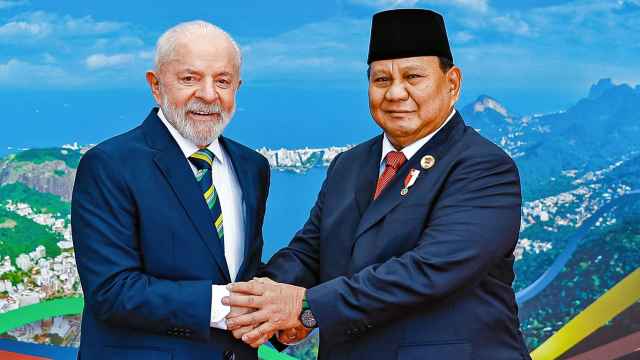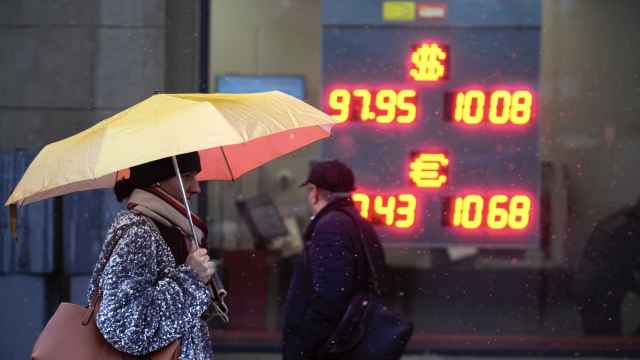Around the world, policies, technologies and extended learning processes have combined to erode barriers to economic interaction among countries. Pick any indicator: trade relative to global gross domestic product, capital flows relative to the global capital stock, and so forth — all are rising.
But economic policies are set at the national level, and, with a few notable exceptions like trade negotiations and the tracking of terrorist funding, policymakers set goals with a view to benefit their domestic economies. And these policies, or policy shifts, are increasingly affecting other economies and the global system, giving rise to what might be called "policy externalities," that is, consequences that extend outside policymakers' target environments.
Of course, such externalities have always existed. But they used to be small. As they grow more significant due to the result of greater global connectedness, they inevitably become harder to manage. After all, global optimization would require a global policymaking authority that we do not have.
These external effects are particularly consequential in the financial sector, owing to the potential for large and relatively abrupt changes in capital flows, asset prices, interest rates, credit availability and exchange rates, all of which have powerful effects on output growth and employment.
The economic crisis and its aftermath is a case in point. Defective growth models in advanced countries, based on excess credit and domestic aggregate demand, were complicated by structural flaws and limited adjustment mechanisms in Europe, leading to instability, a crisis and a large negative shock to the real economy. Emerging economies were immediately affected by credit tightening and rapid declines in exports,creating similar shocks.
Advanced countries moved to prevent a downward spiral using monetary and fiscal policy tools. These, too, had external effects. But at least in the short run, the medicine — distortions in capital markets — was generally considered less damaging than the disease — economic collapse in the advanced economies.
This was followed by an extended version of the assisted-growth model in the advanced countries, largely revolving around unconventional monetary policy; in the U.S. this implied several rounds of quantitative easing, which is simply when the government borrows from itself — a form of price control. Savers were repressed in order to lower the costs of credit for debtors, including governments as well as those seeking to borrow for business expansion.
This did not work very well, because investment was constrained by deficient domestic demand. So savers did what one would expect: they sought higher risk-adjusted returns in emerging economies, causing increases in credit and fueling upward pressure on exchange rates and asset prices.
This obvious externality required policy responses in the emerging countries: limits on capital inflows, reserve accumulation and measures to restrict credit and restrain asset-price inflation. Complaints from emerging-market policymakers about the distortionary effects of the advanced countries' policies were largely ignored.
All of that has changed dramatically since May, when the U.S. Federal Reserve began signaling its intention to "taper" its massive monthly purchases of long-term assets. Asset prices shifted, and capital rushed out of emerging markets, causing credit conditions to tighten and exchange rates to fall.
At a minimum, a short-term growth slowdown is a near certainty. Some wonder whether the destabilizing impact of capital-flow reversals will have other, longer-term adverse effects. For the most part, the latter fear appears overblown, though the risks caused by unexpected policy shifts and related financial adjustments should not be underestimated or dismissed.
The emerging economies generally have the policy instruments, balance sheets and expertise to respond effectively. In addition, while China's output is affected by advanced-country economic performance, its financial system is largely insulated from monetary-policy externalities. The capital account is less open, foreign-currency reserves of $2.5 trillion mean that the exchange rate is controllable, and, with savings exceeding investment (the current-account surplus is declining but still positive), China is not dependent on foreign capital.
China's systemic importance with respect to emerging-market growth, its relative stability and other emerging countries' domestic policy responses suggest that the main effect of the Fed's coming policy shift will be a new equilibrium with less distorted asset prices. This should create opportunity for investors, especially if there is a downward overshoot as the new equilibrium emerges.
Some level of policy coordination might be achieved by an early-warning system, which would provide sufficient time for an organized response. But multilateral communication of significant policy shifts would almost inevitably result in leaks and confidence-damaging insider trading.
Given an expanded mandate and a much larger balance sheet, the International Monetary Fund, with advance notification, could in principle reliably act to stabilize volatile international capital flows. This would buy time for more orderly domestic responses. But that would be a rather large step in the direction of global economic governance and management.
Decentralized policy and growing externalities will result in partial deglobalization, especially in macroeconomic configurations, finance and capital accounts. Thus, it is not a good idea to run persistent current-account deficits and become dependent on temporarily low-cost foreign capital. Open capital accounts may be replaced not by whimsical ad hoc interventions that heighten uncertainty and weaken confidence, but rather by predictable rules-based constraints on financial-capital flows.
As we learned from the crisis, substantial domestic ownership of the banking sector is crucial, in part because multinational resolution mechanisms in cases of insolvency are largely non-existent. Moreover, the pattern of accumulating reserves via current-account surpluses, net private capital inflows or both — a legacy of the 1997 to 1998 Asian financial crisis — will continue and perhaps become even more pronounced. Finally, public purchases of domestic assets to stabilize asset prices and net capital flows will become increasingly common.
We are in the process of learning how to manage growing policy interdependence without much policy coordination. The challenge is to identify policy circuit breakers that have relatively high benefit to cost ratios. Time and experience will help. That is, so long as high volatility does not destabilize many economies in the interim.
Michael Spence, a Nobel laureate in economics, is professor of Economics at New York University's Stern School of Business and senior fellow at the Hoover Institution. © Project Syndicate
A Message from The Moscow Times:
Dear readers,
We are facing unprecedented challenges. Russia's Prosecutor General's Office has designated The Moscow Times as an "undesirable" organization, criminalizing our work and putting our staff at risk of prosecution. This follows our earlier unjust labeling as a "foreign agent."
These actions are direct attempts to silence independent journalism in Russia. The authorities claim our work "discredits the decisions of the Russian leadership." We see things differently: we strive to provide accurate, unbiased reporting on Russia.
We, the journalists of The Moscow Times, refuse to be silenced. But to continue our work, we need your help.
Your support, no matter how small, makes a world of difference. If you can, please support us monthly starting from just $2. It's quick to set up, and every contribution makes a significant impact.
By supporting The Moscow Times, you're defending open, independent journalism in the face of repression. Thank you for standing with us.
Remind me later.






